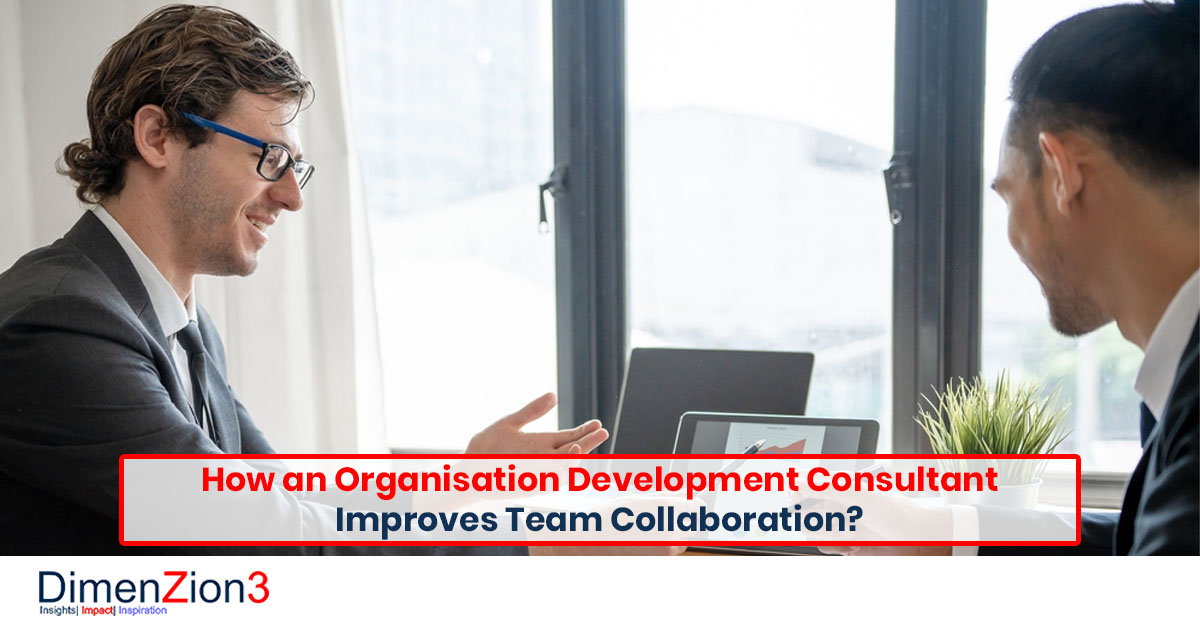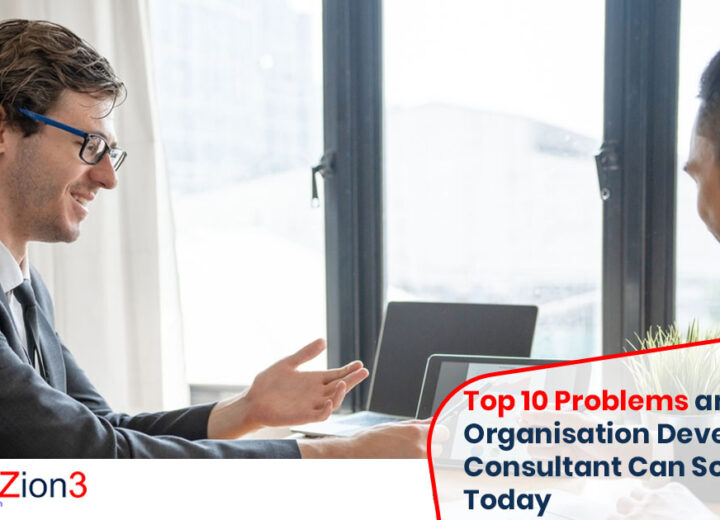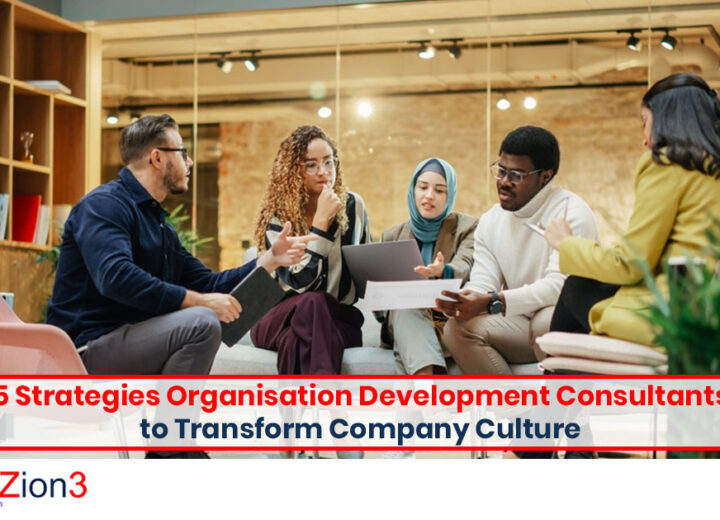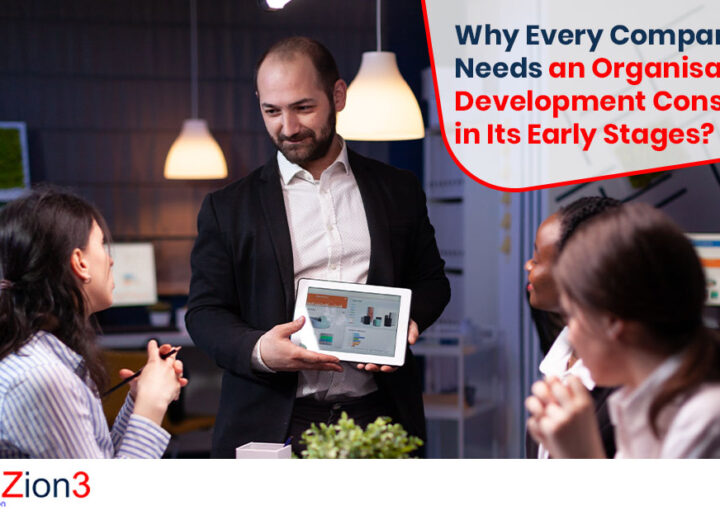
Team collaboration is one of the most important elements of every successful company. When all employees collaborate well with each other, productivity improves, new ideas and concepts can flow, and overall workplace culture improves. However, it is not always a cakewalk, and team collaboration can be difficult. Because people from different walks come together to work as a team. Therefore, having an expert by your side can help you to keep your team collaboration worries at bay. By ‘expert’ we mean getting in touch with an Organisation Development Consultant.
The consultant brings expertise, strategy, and proven models to support your team. This improves collaboration between team members and creates a culture for working together as teams of trust and performance.
In this blog, we will learn how a Development Consultant can improve team collaboration and why having one can be beneficial to your business in the long run.
1. Identifying Barriers to Teamwork
The first step to better collaboration is understanding what prevents it. Many teams struggle to achieve collaboration as a result of ambiguity regarding roles, ineffective communication, or the inability to resolve differences. An Development Consultant will first assess the organisation’s structure, culture and dynamics. They will often use surveys, interviews, and observations to identify the roadblocks that get in the way of collaboration.
For example, in some organisations, employees are hesitant to contribute ideas, as they fear criticism about their idea. In others, teams work in silos and do not share, collaborate, or consult across the organisation. By identifying these obstacles, the Development consultant is then able to provide leaders of the organisation with the insights and action plans to confront their limitations.
2. Improving Communication Practices
Communication practices are the foundation of collaboration. Without effective communication practices, even the best teams will struggle to complete collaborative work. An Organisation Development Consultant will help leaders in their organisation introduce tools and frameworks that support transparent and effective communication in their teams. This could include generating regular check-ins, establishing a collaboration tool or medium, and creating channels for feedback.
OD consultants will also help your team in improving skills like active listening, resolving conflict, and giving constructive feedback. These skills will not only help with communication but will also help to develop team members who feel heard and valued.
3. Defining Roles and Responsibilities
One of the most underrated reasons teams are unsuccessful at collaborating is around role confusion. If people don’t understand their roles, this leads to overlap in assignment responsibility, missing deadlines, and ultimately invoking frustration. Consultants can assist organisations to form clear structures in which every team member understands their own role, as well as the roles of other team members, and how it contributes to the whole.
When responsibilities are clear, employees can work together more effectively by eliminating friction. Hence, they can collaborate over shared goals instead of competing over assignments.
4. Developing a Trusting Culture
Collaboration can only happen when there is trust. If trust is absent, team members will hold back their ideas, avoiding making a request for help. Hence, they will have a hard time working closely with their co-workers. An Development Consultant guides leaders in building trust and collaboration by having open conversations, sharing knowledge, and putting systems in place that recognise the contribution of team members and reward collaborating as a team.
For example, consultants will coach the leadership group so they recognise team highlights, not just individual highlights. This helps employees to lean in to one another and creates a culture where collaboration is recognised and rewarded in the workplace.
5. Strengthening Leadership Support
Team collaboration relies heavily on leadership. If leaders and managers do not promote collaboration, employees are likely to work in isolation, individually or in groups. Consultants can partner with leaders to develop their collaborative leadership skills. They explain how to support successful group discussion and how to appropriately delegate responsibilities.
When leadership is fully aligned, collaborative behaviours are supported at every level of the organisation. Through collaboration, we create the context for employees to evolve towards how to connect and work with others.
6. Implementing Collaboration Tools and Technology
There is no denying that technology is a significant part of fluid collaboration in the current fast-paced workplace. Consultants suggest technology applications that include project management tools, instant messaging apps and virtual meeting tools to enable connectivity. However, consultants do not merely suggest the use of tools – they ensure teams are adequately trained. Use of technology is combined with training to facilitate seamless collaboration – regardless of whether it is remote or a hybrid work environment.
7. Encourage Continuous Learning and Development
Collaboration improves when employees feel confident in their abilities and know how to collaborate, contribute and work effectively with others. Ultimately, Development Consultants assist companies in the delivery of workshops and training experiences to help employees engage in skill-building on teamwork, problem-solving, and flexibility.
In this way, employees can build their personal skills while learning to relate their skills to others, thereby working towards the collaborative intentions of their work team.
8. Measuring and Sustaining Collaboration
Finally, ODs don’t just implement your strategies and run; we measure our success using feedback and performance outcomes. This will formalise the improvement to your team’s collaboration, making it a part of your corporation’s long-term culture.
Through ongoing support, businesses can continue to sustain collaboration while making the transitions to newer and growing teams.
How DimenZion3 Can Help
The focus of DimenZion3 is not on quick-fixing problems. Rather, with our expert knowledge of organisation development and employee engagement, we are an experienced consulting partner. Our interventions are introduced with purpose and care monitoring, committed to success rather than remaining as an artefact of an improved process for collaboration. This market value is undeniable.
By addressing your workplace challenges, we create strategies to change the culture of collaboration for sustained growth and development.
Collaboration remains a poorly articulated value proposition. Ultimately, the power of collaboration has little to do with working together but with working better together. An Organisation Development Consultant may help work towards this by removing the barriers to collaboration and communication and creating an alignment of leadership to the work of teams. Collaborating companies take action and distinguish themselves in today’s marketplace by creating stronger unifying teams capable of exceptional outcomes.
When your organisation is ready to take collaboration to the next stage, working with a consultant like DimenZion3 may be the best decision you’d ever make.




